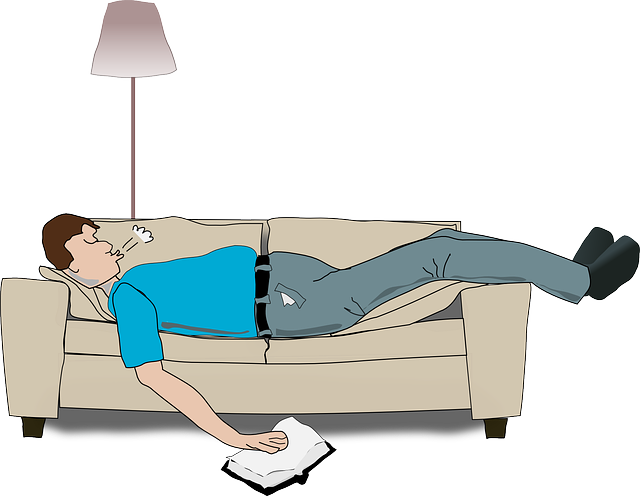Snoring – What are the home remedies?
Snoring is the rattling and/or snorting sound that is made during sleep. The sound is made by airflow causing the soft palate (the muscles at the back of the roof of the mouth) and other tissues in your mouth and upper airway to vibrate as you breathe in (inspiration). Severe snoring can cause sleep deprivation of both the sufferer and sleeping partner. Snoring has recently been associated with an increased risk of stroke and cardiovascular disease.
Contents
Causes of Snoring

Snoring is caused by the vibration of different structures in the back of the mouth and upper airway which has several causes:
Sex –Men are more likely to suffer from snoring than women, possibly be due to higher testosterone levels which have been shown to increase the severity of snoring.
Anatomy – Having narrower airways, a cleft palate and other physical attributes such as a misaligned jaw increases the risk of snoring. Breathing through the nose allows a smooth airflow over the soft palate compared to breathing through the mouth. Blocked or inflamed nostrils, small nostril size and nasal anatomic abnormalities all contribute to breathing through the mouth and increasing snoring risk.
Sleep posture – Sleeping on your back compared to sleeping on your side increases the risk of snoring. This is most likely caused by the tongue and soft palate obstructing the airway due to gravity.
Obesity – Being overweight drastically increases the risk of snoring, particularly if you have a large amount of fat around your neck. People with a neck circumference over 17inches have a much higher incidence of snoring.
Age – The incidence of snoring increases with age due narrowing of the airways and a loss of muscle tone which increases the likelihood of the soft palate vibrating or blocking the airway.
Alcohol and Smoking – Alcohol is a muscle relaxant and induces narrowing of the airways increasing the likelihood of snoring. Smoking also causes a narrowing of the airways due to inflammation.
Medical Treatment of Snoring
There are no cures for snoring but a range of treatment strategies can be used to help treat the condition.
- Mandibular Advancement Devices (MADs) – These oral devices, similar to a mouth guard, can bring your lower jaw and tongue forward which will open your airway wider.
- Nasal Dilators – These are commonly inexpensive plastic strips which are placed inside your nostrils before sleep. The increase the size of the nostril and stiffen the nasal wall which increases airflow.
- Surgery – Severe cases of snoring may require surgery to increase the size of your airway by removing tissues or correcting abnormalities. Removal of tonsils (tonsillectomy) and adenoids (adenoidectomy) and tightening of loose tissue in the throat and palate (uvulopalatopharyngoplasty (UPPP)) are some of the treatment options available.
Alternative Therapy of Snoring
- Lifestyle changes – Losing even small amounts of weight and cessation of smoking can drastically decrease the severity of your snoring. Strengthening of the neck and throat muscles can help prevent narrowing of the airways. Additionally, not drinking alcoholbefore sleep will help decrease the likelihood of snoring.
- Bedtime changes – Sleeping on your side will decrease the risk of snoring. This can be achieved by putting an item such as a tennis ball in a sock and pinning it to the back of your bed clothes as the discomfort of lying on your back will make you turn onto your side. Additionally, clearing your nasal passages with a neti pot or nasal decongestants can help you breathe through your nose instead of your mouth.
Dietary Solutions of Snoring
A healthy balanced diet can be used to help reduce the incidence of snoring by helping you maintain a natural weight. Dairy products can exacerbate snoring by increasing mucus build-up in the throat and nose and should be reduced, particularly before sleeping.
Nasal inflammation irritation and blocking (via mucus formation) can lead to snoring honey may be beneficial before bed. Honey in a natural antiseptic, anti-inflammatory and decongestant. Refined carbohydrates found in junk food and white bread can increase mucus formation, so increasing unrefined carbohydrates with whole wheat and whole grain foods may help reduce mucus formation.
The most promising immediate-relief methods come from herbal remedies. Steam inhalation with menthol, eucalyptus or pine oil before bed will help clear your sinuses. Additionally, teas made using fenugreek, peppermint, lavender and chamomile with a few drops of honey may help alleviate your snoring problems via their decongestion abilities.
Vitamins and minerals for Managing Snoring
N-acetylcysteine (NAC) and vitamin D3 supplements have been shown to decrease snore time and duration in patients with sleep apnea (a condition where there is a physical blockage of airflow). These compounds are found at very low levels in food and are best taken as supplements.

